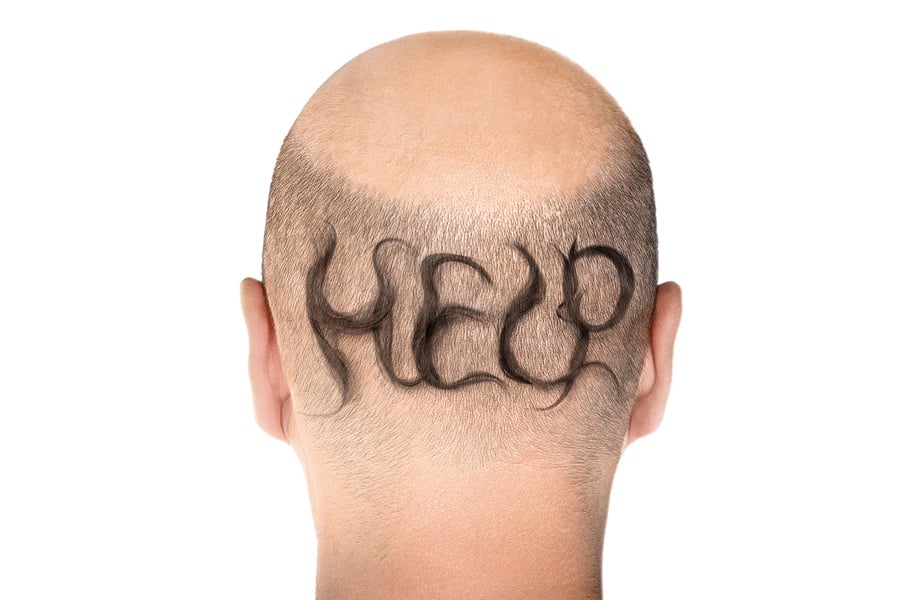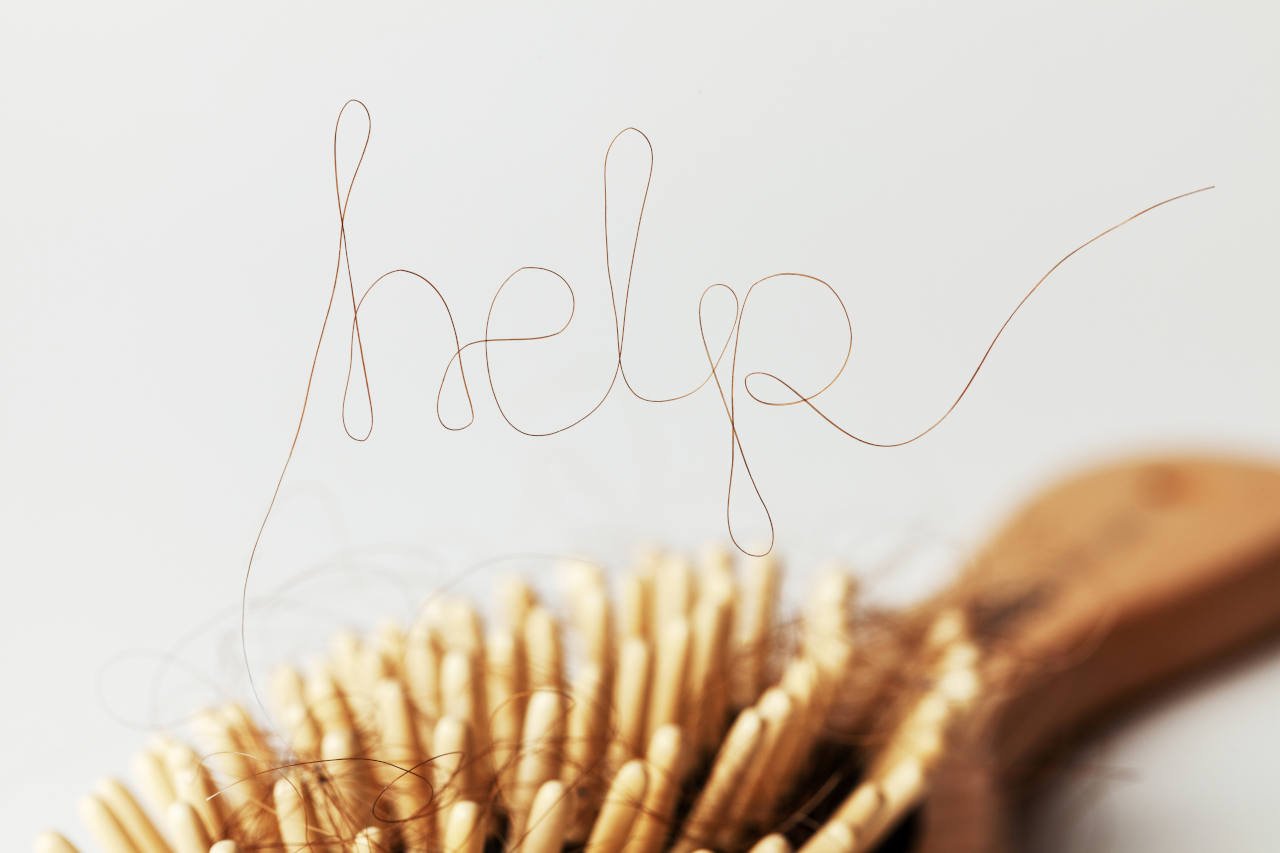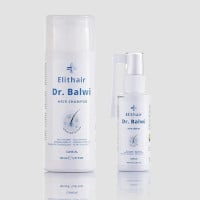
Can Hair Grow Back After Balding Naturally?
According to the American Hair Loss Association, 25% of men begin balding before 21 years of age which can become a major cause for concern. In fact, you may be wondering how you can regrow your hair, or if it’s even possible to do so.
While hair can regrow on its own, sometimes an intervention is required. We’ll take you through the causes of hair loss, along with the best solutions in order to combat hair loss and regrow hair.
Summary
- What Causes Balding?
- Is It Possible to Regrow Hair Naturally?
- How Can You Avoid Going Bald (Medical Solutions)
- Hair Transplants Provide a Permanent Solution to Hair Loss
- Patient Success Stories
- Conclusion
What Causes Balding?

There are a few different reasons you can go bald, however, the most common causes of balding include:
Genetic factors and hereditary hair loss
The most common cause of balding is genetics. Androgenetic alopecia, commonly known as male or female pattern baldness, is hereditary and results from a combination of genetic predisposition and hormonal factors. This is due to the hormone Dihydrotestosterone (DHT), which shrinks the follicle and can lead to hair loss.
This process called miniaturisation causes new hairs to stop growing in that place. Once the follicle has been shrunk and closed over or is scarred and no new hair has grown there in years, there can be no new growth.
Hormonal imbalances
Hormonal fluctuations, such as those occurring during puberty, pregnancy, childbirth, and menopause, can impact hair growth cycles. Androgens like dihydrotestosterone (DHT) can shrink hair follicles in genetically susceptible individuals, leading to hair thinning and eventual baldness.
Age-related hair loss
As individuals age, the rate of hair growth slows down, and hair follicles may become less active. This natural ageing process, coupled with hormonal changes, can contribute to hair thinning and balding.
Nutritional deficiencies
Inadequate intake of essential nutrients like vitamins, minerals, and proteins can affect hair health. Nutritional deficiencies can disrupt the hair growth cycle, leading to weakened hair shafts and increased shedding.
Stress
Chronic stress can disrupt hormone levels in the body, leading to conditions like telogen effluvium, where hair prematurely enters the resting phase of the growth cycle and sheds more than usual. While stress-related hair loss is often temporary, prolonged stress can exacerbate other underlying causes of balding.
Is It Possible to Regrow Hair Naturally?
Regrowing hair naturally is a topic of interest for many experiencing hair loss. While scientific evidence supporting the efficacy of natural remedies varies, some substances have shown the potential to promote hair growth and improve overall hair health. Some of the most common ways include:
- Essential oils: Certain essential oils, such as rosemary, peppermint, lavender, and lemongrass, are believed to stimulate hair follicles and promote hair growth. These oils may increase blood circulation to the scalp, providing essential nutrients to the hair follicles.
- Carrier oils: Carrier oils like coconut, jojoba, and pumpkin seed oil are often used as bases for essential oils. These oils contain beneficial fatty acids and vitamins that moisturise the scalp, strengthen hair strands, and promote a healthy environment for hair growth.
- Aloe vera: Aloe vera contains enzymes that promote hair growth by removing dead skin cells from the scalp and balancing pH levels. Its anti-inflammatory properties may also soothe scalp irritation, reducing hair loss.
- Onion juice: Onion juice is rich in sulphur, which is essential for the production of collagen and keratin, proteins vital for hair growth. Some studies suggest that applying onion juice to the scalp may improve hair density and thickness, although more research is needed to confirm its effectiveness.
- Fatty Acids: Omega-3 fatty acids found in fish oil and flaxseed oil are important for maintaining scalp health and promoting hair growth. These fatty acids nourish hair follicles and support the production of sebum, a natural conditioner for the scalp and hair.
While these natural remedies may offer some benefits, it’s essential to manage expectations and understand that results can vary from person to person. Additionally, natural remedies may take longer to produce noticeable effects compared to pharmaceutical treatments like minoxidil or finasteride.
How Can You Avoid Going Bald (Medical Solutions)
There is no way for certain that you can ‘avoid’ balding. But you can, in fact, slow or halt the process to some extent. Medical solutions are often a popular option for many and produce favourable outcomes.
Minoxidil (Regaine)
Minoxidil, a topical medication also known as Regaine, is widely used to treat balding by promoting hair regrowth. It works by dilating blood vessels in the scalp, improving blood flow to hair follicles, and prolonging the hair growth phase.
While its precise mechanism isn’t fully understood, minoxidil has been shown to stimulate hair follicles’ activity, resulting in thicker, longer, and more numerous hair strands.
Typically applied twice daily to the affected areas, minoxidil is available over-the-counter and in prescription-strength formulations. While it’s effective for many individuals, results vary, and continued use is necessary to maintain hair growth.
Finasteride
Finasteride, an oral medication, is commonly prescribed to treat male pattern baldness by inhibiting the enzyme 5-alpha-reductase, which converts testosterone into dihydrotestosterone (DHT).
By reducing DHT levels in the scalp, finasteride helps to slow down hair loss and promote hair regrowth. Typically taken daily, it’s most effective for preventing further hair loss in the crown and mid-scalp areas.
However, results can vary, and continued use is necessary to maintain benefits. While generally well-tolerated, finasteride may cause sexual side effects such as decreased libido or erectile dysfunction in some individuals, although these effects are rare.
Hair Transplants Provide a Permanent Solution to Hair Loss
While natural remedies like supplements or topical treatments may offer some benefits, they often require ongoing maintenance and may not produce the same level of significant and lasting improvement as a hair transplant.
Hair transplants offer a permanent solution to hair loss by surgically relocating healthy hair follicles to balding areas, providing long-lasting and natural-looking results. They also address the root cause of hair loss and provide exceptional outcomes for all types of hair loss disorders, including areata, traction and barbae alopecia.
With modern techniques such as follicular unit extraction (FUE), transplants can achieve seamless integration with existing hair, restoring both density and aesthetics.
Patient Success Stories
We have a vast amount of experience in treating a huge range of hair loss conditions through hair transplants. Learn more with these patient success stories plus before and after photos.
Conclusion
No matter the stage of hair loss, our consultants are on hand to provide the best advice for you on how to stop hair loss and regrow hair. If you’re looking for preventative measures to take, our shop has a range of products from serums to supplements to encourage regrow for hair.
For those who are looking to achieve long-term results that provide full, thick hair, a hair transplant with Elithair is your best choice. If a hair transplant sounds like the best option for you, contact us today to book a free consultation.
FAQ
Are there any side effects associated with natural hair regrowth remedies?
Natural hair regrowth remedies can cause side effects in some individuals. Essential oils may cause allergic reactions or scalp irritation, while onion juice might have a strong odour and cause skin sensitivity. Always perform a patch test before full application.
How long does it take to see results from natural hair regrowth methods?
Results from natural hair regrowth methods can vary significantly between individuals. Typically, it may take several months of consistent use to observe any noticeable improvement in hair density and growth.
Can stress management techniques aid in hair regrowth?
Yes, managing stress through techniques such as meditation, yoga, and regular exercise can positively impact hair regrowth. Reducing stress helps balance hormone levels and supports overall hair health.
Are there any specific dietary recommendations for promoting hair regrowth?
A balanced diet rich in vitamins (especially biotin, vitamin D, and vitamin E), minerals (like zinc and iron), and proteins can promote hair regrowth. Foods such as eggs, nuts, seeds, leafy greens, and fatty fish are beneficial for hair health.
How effective are over-the-counter hair regrowth products compared to prescription treatments?
Over-the-counter products, like minoxidil, can be effective for some individuals but often require long-term use. Prescription treatments, such as finasteride, are generally more potent and can offer better results, but they also come with a higher risk of side effects.
Can hair regrowth be sustained without continuous treatment?
Sustaining hair regrowth without continuous treatment is challenging, especially for those with genetic or hormonal hair loss. Ongoing use of treatments or maintenance routines is typically necessary to retain results.
What role do genetics play in hair regrowth potential?
Genetics play a significant role in determining hair regrowth potential. Individuals with a family history of hair loss may find it more difficult to achieve and maintain hair regrowth without medical intervention.
Are there any non-surgical medical treatments that can aid in hair regrowth?
Non-surgical medical treatments such as PRP therapy, low-level laser therapy, and certain prescription medications can aid in hair regrowth by stimulating hair follicles and improving scalp health.
How do hormonal changes impact hair regrowth efforts?
Hormonal changes, such as those due to pregnancy, menopause, or thyroid disorders, can significantly impact hair regrowth efforts. Balancing hormones through medical treatment or lifestyle changes is crucial for effective hair regrowth.
Can environmental factors affect the success of hair regrowth treatments?
Environmental factors, including pollution, UV exposure, and harsh hair care practices, can negatively impact the success of hair regrowth treatments. Protecting hair and scalp from these factors is essential for optimal results.


